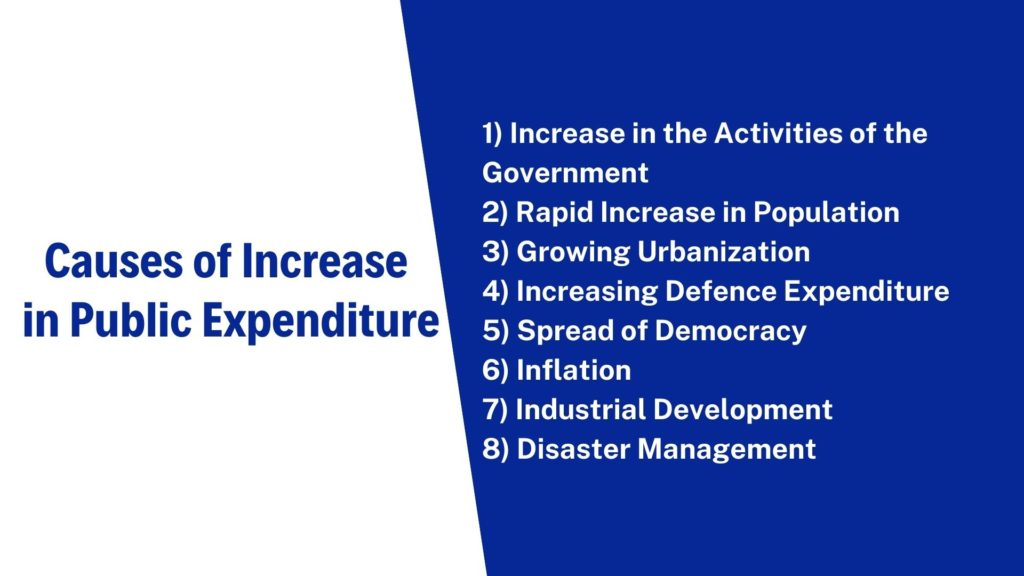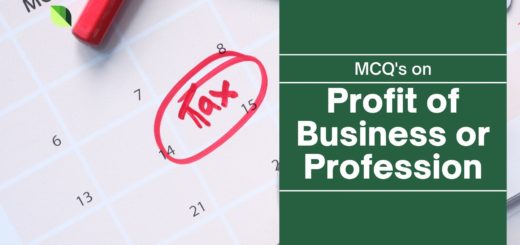Causes of Increase in Public Expenditure | Free Economic Blogs
Table of Contents
Causes of Increase in Public Expenditure

What is Public Expenditure?
The term public expenditure refers to the expenses of public authorities like the Central, state and local governments. Public expenditure occupies a very important place in the study of public finance. It is the end of all financial activities of the government. Public expenditure is incurred basically to maximize social welfare
Public expenditure is that expenditure which is incurred by the public authority [Central, State, and Local Bodies] for the protection of their citizens, for satisfying their collective needs, and for promoting their economic and social welfare. Till the 20th century, the majority of the governments had adopted a policy of laissez-faire.
Under this policy, the functions of government were restricted to obligatory functions. But, modern governments not only perform obligatory functions such as defence and civil administration but also perform optional functions for promoting the social and economic development of their countries. Therefore, the study of public expenditure is an important part of the study of public finance.
- Microeconomic Definition | Historical Review of Microeconomics
- Scope Or Nature of Microeconomics
- Features of Microeconomics
- Importance of Microeconomics
Causes of Increase in Public Expenditure
1) Increase in the Activities of the Government
The modern government performs many functions such as the spread of education, public health, public works, public recreation, social welfare schemes, etc. It is observed that new functions are continuously being undertaken and old functions are being performed more efficiently on a large scale by the government. This leads to an increase in public expenditure.
2) Rapid Increase in Population
The population of developing countries like India is increasing fast. In the 2011 Census, it was 121.02 crores. As a result, the government has to incur greater expenditure to fulfil the needs of the increasing population.
3) Growing Urbanization
The spread of urbanization is a global phenomenon of the day. This leads to an increase in the government expenditure on water supply, roads, energy, schools and colleges, public transport, sanitation, etc.
4) Increasing Defence Expenditure
In modern times, defence expenditure of the government is increasing even in peacetime due to unstable and hostile international relationships.
5) Spread of Democracy
The majority of the countries in the world are democratic in nature. A democratic form of government is expensive due to regular elections and other such activities. This results in an increase in the total expenditure of the government.
6) Inflation
Just like a private individual, the government has to buy goods and services from the market for the spread of economic and social development. Normally, prices show a rising trend. Due to this, the government has to incur increasing costs.
7) Industrial Development
Industrial development leads to an increase in production, employment, and overall growth in the economy. Hence, the government makes huge efforts for implementing various schemes and programmes for industrial development. This results in an increase in government expenditure.
8) Disaster Management
Many natural and man-made calamities like earthquakes, floods, cyclones, social unrest, etc. are occurring more frequently. The government has to spend a huge amount on disaster management which increases total expenditure.
Modern governments are working for the ‘welfare state’. Hence, there is a continuous increase in public expenditure.


